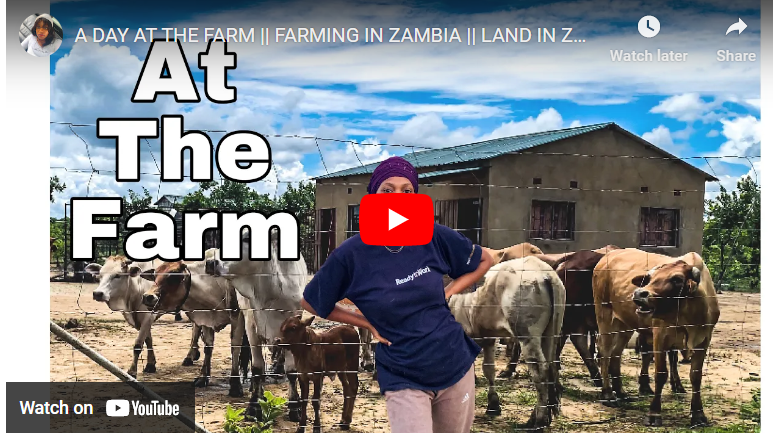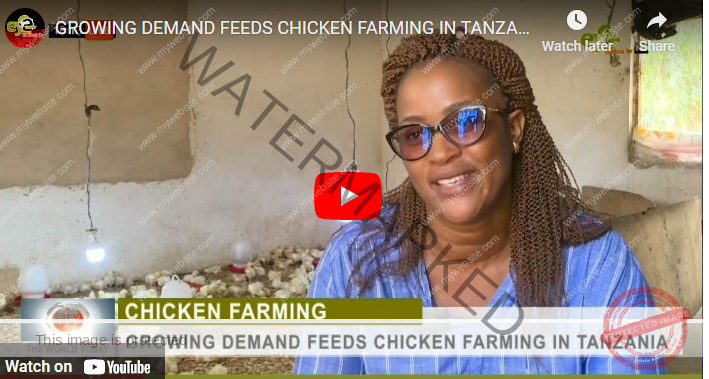Pig farming is one of the fastest-growing sectors in Kenya’s agricultural industry, thanks to the rising demand for pork and other pig products. Despite the challenges of the sector, some farmers have achieved significant success, including the Richest Pig Farmer in Kenya.
Following are some of teh richest pig Farmers in Kenya Michael Koome Mburugu, John Njau, and Wirigi.
In this article, we’ll examine how he achieved his success, the systems he uses, the lucrativeness of pig farming, his successful tips, factors that contribute to pig farming, challenges, and best practices of pig farming.
Most Successful Pig Farmer In Kenya
Pig farming is a lucrative business in Kenya, and there are a handful of farmers who have excelled in this sector. These pig farmers runs a successful pig farming enterprise.
We will delve deeper into the pig farming practices, the factors that contribute to pig farming success, and the challenges faced in the industry.
Read Also: Richest Poultry Farmers In Uganda [Top 6 Ranked]
#1. Michael Koome Mburugu
Michael Koome Mburugu was born in Meru County, Kenya. He pursued his education at various institutions, including the University of Nairobi, where he earned a degree in law.
Mburugu also has a background in accounting, having earned a diploma in the field.
After completing his education, Mburugu worked in various industries, including banking and insurance.
Read Also: Top 5 Richest Dairy Farmers In India
However, his passion for agriculture led him to venture into farming, starting with poultry farming.
Pig Farm
Mburugu began his farming journey with a small poultry farm, which he gradually expanded over time. He realized the potential for growth in the pig farming industry and decided to invest in the sector.
With the help of his wife, Jennifer Kago-Koome, Mburugu established a pig farming enterprise on their 22-acre land in Maili Nane, Buuri Constituency of Meru County.
Read Also: Top 5 Richest Diary Farmers In Kenya
Their pig farm, which started with a small number of pigs, has grown significantly, with the couple currently keeping up to 2,700 pigs.
They use modern farming techniques and have a well-structured system that ensures optimal conditions for breeding, feeding, and growth.
Net Worth
Mburugu’s success in pig farming has resulted in a significant increase in his net worth. His pig farming enterprise is estimated to be worth millions of Kenyan shillings, with reports indicating that he earns tens of millions annually from the business.
Read Also: Top 5 Richest Diary Farmers In South Africa
Mburugu’s success has earned him recognition in Kenya’s business circles, with many looking up to him as a role model in the farming sector.
#2. John Njau
John Njau is a 32-year-old pig farmer based in Ikinu, Kiambu County, Kenya. He was introduced to pig farming in 2018 by his mother and has since built a successful business in the industry.
Pig Farming Business
Njau currently has 92 pigs on his farm, consisting of Landrace and Camborough breeds. He uses a Duroc boar to serve his sows and has over 40 piglets of different ages.
Read Also: Top 10 Richest Diary Farmers In The World
He sells his pigs at various prices, ranging from Sh30,000 to Sh40,000, depending on size and age. He also sells pregnant gilts and piglets to farmers and institutions like secondary schools and primary schools.
Njau advises aspiring pig farmers to do their homework and ensure there is a ready market before taking the plunge.
He also emphasizes the importance of using the right breeds and good feeds to make money and get good returns. Njau plans to produce his own sausage and bacon in the future.
Read Also: Top 5 Richest Famers In America
Net Worth
Although John Njau’s net worth is not disclosed, he has made a name for himself and earned a good income within three years through pig farming.
He has not experienced any disease attack so far and has been selling pork to various butcheries within and outside Kiambu with a kilogramme selling at Sh400.
#3. Wirigi
Wirigi, a high school math teacher, decided to venture into pig farming to secure his future after retirement. He invested around KES 400,000 to set up Gritty Pigs, his pig farming enterprise located in Meru, Kenya.
Read Also: Top 10 Richest Farmers In Africa
Pig Farming Business
Starting with five pigs, Wirigi’s pig farming business, Gritty Pigs, has flourished. He breeds Landrace pigs, which have been prolific in giving birth to 14-15 piglets, most of which survive to maturity. Wirigi also sells piglets to other farmers and local slaughterhouses.
Wirigi advises that the success of pig farming lies in having the right breed, proper housing, feeding, disease and pest management, among other practices. He recommends commercial feeds for better yields.
Read Also: Top 12 Richest Farmers In Australia
Net Worth
Wirigi’s net worth is not publicly available. However, his successful pig farming business has provided him with significant returns on his initial investment and serves as a testament to the potential profitability of pig farming in Kenya.
The Type of System the Richest Pig Farmer Uses
The Richest Pig Farmer in Kenya uses a modern pig farming system that has contributed to his success. Below are some characteristics of the system:
Read Also: Top 5 Richest Farmers In Ghana
#1. Controlled Environment
The farmer uses a controlled environment system that ensures optimal conditions for pig breeding, feeding, and growth. The pigs are kept in an enclosed, temperature-controlled environment that protects them from harsh weather conditions, diseases, and predators.
#2. Automated Feeding System
The farmer uses an automated feeding system that delivers the right amount of feed to the pigs at the right time, ensuring maximum growth and minimal wastage.
Read Also: Top 10 Richest Farmers In India
#3. Manure Management System
The farmer uses a manure management system that collects, treats, and recycles pig waste, reducing environmental pollution and generating additional income.
#4. High-Quality Breeds
The farmer uses high-quality pig breeds that have high growth rates, high meat quality, and high resistance to diseases.
Read Also: Top 10 Richest Farmers In Ireland
#5. Strict Biosecurity Measures
The farmer maintains strict biosecurity measures that prevent the entry and spread of diseases in the farm. All visitors, farm workers, and equipment must go through a thorough disinfection process before entering the farm.
Lucrativeness of Pig Farming
Pig farming is a highly profitable venture in Kenya, with the potential for significant returns on investment. Here are some reasons why pig farming is lucrative:
#1. High Demand for Pork
Pork is one of the most consumed meats in Kenya, with a growing demand for pork products such as bacon, sausages, and ham.
Read Also: Top 10 Richest Farmers In Kenya
#2. Short Breeding Cycle
Pigs have a short breeding cycle of about 4-6 months, which means that farmers can produce several batches of pigs in a year, increasing their income.
#3. High Feed Conversion Ratio
Pigs have a high feed conversion ratio, which means that they can convert feed into meat more efficiently than other livestock such as cattle and sheep, reducing the cost of production.
#4. High Price of Pork
Pork products are relatively expensive, which means that farmers can earn a high income from selling their products.
Read Also: Top 5 Richest Farmers In South Africa
#5. Access to Markets
There is a ready market for pork products in Kenya, with many supermarkets, hotels, and restaurants looking for high-quality pork products to meet their customers’ needs.
Successful Tips about the Richest Pig Farmer
The Richest Pig Farmer in Kenya has achieved his success through the following tips:
#1. Specialization
The farmer has specialized in pig farming and has developed expertise in the sector, allowing him to maximize his profits.
Read Also: Top 12 Richest Farmers In The World
#2. Diversification
The farmer has diversified his product range by producing other pig products such as sausages and bacon, increasing his income streams.
#3. Innovation
The farmer has embraced innovation by adopting modern pig farming systems that have increased his productivity and efficiency.
#4. Networking
The farmer has developed a strong network of suppliers, buyers, and fellow farmers, enabling him to access critical resources and markets.
Read Also: Top 5 Richest Farmers In Zambia
#5. Record-keeping
The farmer maintains accurate records of his farming activities, enabling him to track his progress, identify areas of improvement, and make informed decisions.
Factors that Contribute to Pig Farming
Several factors contribute to successful pig farming in Kenya, including:
- Access to Quality Breeds: Farmers need to have access to high-quality pig breeds that are disease-resistant, fast-growing, and produce high-quality meat.
- Adequate Housing: Pigs require proper housing that provides optimal conditions for breeding, feeding, and growth. The housing should be well-ventilated, temperature-controlled, and easy to clean.
- Feeding: Pigs need a balanced diet that provides all the necessary nutrients for growth and development. Farmers should ensure that they provide their pigs with a balanced diet that meets their nutritional requirements.
- Disease Management: Pigs are prone to various diseases, which can significantly impact their health and productivity. Farmers need to have a robust disease management plan that includes regular vaccinations, deworming, and biosecurity measures.
- Marketing: Farmers need to have access to markets where they can sell their products at a fair price. They can market their products through various channels such as supermarkets, hotels, restaurants, and direct sales to consumers.
Read Also: Top 5 Richest Goat Farmers In Uganda
Challenges of Pig Farming
Despite the potential for significant returns, pig farming in Kenya is not without challenges. Some of the challenges include:
#1. Diseases
Pigs are susceptible to various diseases, which can cause significant losses to farmers. Controlling and preventing these diseases requires significant investment in disease management.
#2. Feed Costs
The cost of feed is a significant expense in pig farming, and fluctuations in feed prices can significantly impact the profitability of the business.
#3. Capital
Starting a pig farming business requires significant capital investment, including purchasing land, building housing, buying equipment, and acquiring breeding stock.
#4. Market Access
Farmers may face challenges in accessing markets for their products, particularly if they are small-scale farmers without access to established supply chains.
Read Also: Richest Pig Farmer In Uganda
#5. Regulation
Pig farming in Kenya is subject to various regulations, including health and safety standards, environmental regulations, and licensing requirements.
Best Practices of Pig Farming
To ensure success in pig farming, farmers need to adopt best practices that promote optimal conditions for breeding, feeding, and growth. Some of the best practices include:
#1. Regular Health Checks
Farmers should conduct regular health checks on their pigs to identify and address any health issues promptly.
#2. Proper Feeding
Farmers should ensure that they provide their pigs with a balanced diet that meets their nutritional requirements and encourages maximum growth.
#3. Hygiene
Farmers should maintain good hygiene practices, including regular cleaning of housing, feeding equipment, and handling facilities.
#4. Record-keeping
Farmers should keep accurate records of their farming activities, including breeding, feeding, and health management, to help them make informed decisions and track their progress.
#5. Continuous Learning
Pig farming is a dynamic sector, and farmers should continually seek knowledge and skills to improve their farming practices and stay competitive in the market.
Biggest Pig Farm In Kenya
The biggest pig farm in Kenya is run by Farmer’s Choice, a company that produces and supplies high-quality pork products to local and international markets.
The farm, located in Thika, has over 4,000 sows and produces more than 50,000 pigs annually. Farmer’s Choice has been a pioneer in the pig farming industry in Kenya, setting standards for others to follow.
Is Pig Farming Profitable In Kenya
Pig farming is a profitable venture in Kenya, as the demand for pork and pork products continues to rise.
The market for pork is driven by the growing middle class, which has increased the demand for protein.
Additionally, pig farming has a low entry barrier, making it accessible to small-scale farmers. With proper planning and management, pig farming can be a lucrative venture in Kenya.
Cost Of Starting A Pig Farm In Kenya
The cost of starting a pig farm in Kenya depends on various factors, such as the size of the farm, the location, and the breed of pigs. Generally, the cost of starting a small-scale pig farm ranges from Ksh. 50,000 to Ksh.
100,000, while the cost of starting a larger farm can go up to millions of Kenyan shillings. However, with proper planning and management, the returns on investment can be significant.
Conclusion
The story of the richest pig farmer in Kenya is a testament to the potential of agribusiness as a means of wealth creation. Through hard work, innovation, and a willingness to take risks, this farmer has built a successful business that not only generates profits but also creates jobs and contributes to the country’s food security. It serves as an inspiration to aspiring entrepreneurs in the agricultural sector to pursue their dreams with determination and persistence.




wll detailed information for those who want to venture into pig farming business like me.